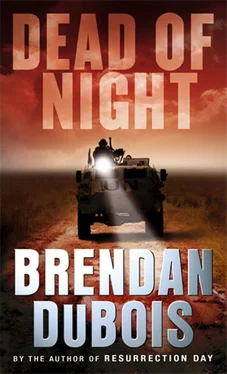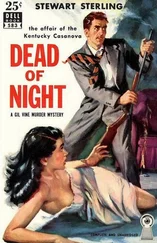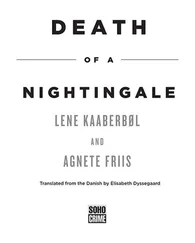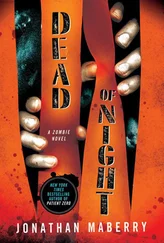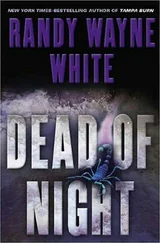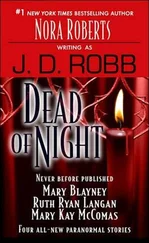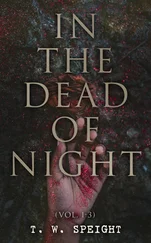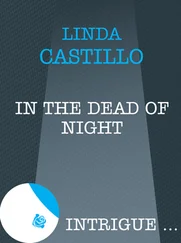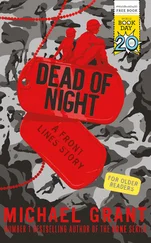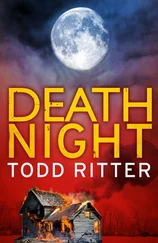Brendan DuBois
DEAD OF NIGHT


Our camp this evening was an old motel that had survived better than other buildings in the small town, though I guess that depends on your definition of survival. After a month in-country, my definition meant a roof and a high percentage of intact windows. An earlier visit by one of the UN reconstruction crews had set up a generator in the rear parking lot so at least there was running water from a nearby well and a few lights. When we got squared away, our team leader, Jean-Paul Cloutier, suggested that we build a fire. I could sense the hesitation in the other members of our group as we stood in the motel’s vehicle area. The previous three nights, moving deeper into the disputed territory, a fire had been a fine idea, since I’d been sleeping on the ground under tents donated by the Belgians and we could hear the comforting growl of UN convoys moving out on a nearby two-lane highway. A fire was a bit of luxury. But tonight? So close to the inspection sites?
Jean-Paul clapped his large hands together, like an overwhelmed schoolmaster trying to impress his students. He spoke to us in English. It was the lingua franca of our little group. ‘I’m sure there is nothing to worry about, correct? Or else Charlie here would be telling us to huddle in a basement somewhere. Charlie, am I right?’
Charlie Banner smiled, kept his arms folded. He was in a camouflaged field uniform of the US Marines, had a light blue beret on his head and wore a holstered pistol at his side. The UNFORUS brassard hung from his muscular right arm. ‘You folks go right ahead,’ he said. ‘I’m sure things will be just fine.’
Jean-Paul gave a twitch of his head. ‘There you go, then. Let’s get some firewood, eh?’ He was about a half-foot taller than me and plenty wide. The top of his head was covered with black stubble and he had black-rimmed eyeglasses. Like the rest of us he wore blue jeans and heavy work boots, and he had a thin down parka that at one time had probably been yellow and had faded almost to white. On the lapels of each of our parkas was a square radiation-monitoring device called a TLD, which stood for thermoluminescent dosimeter and which measured our radiation exposure in-country. Although we were scores of kilometers away from any supposed fallout, the instrument was supposed to make us feel better that any random exposure was being monitored. Trust me, the gizmo was only working at fifty percent effectiveness: no doubt it was accurately measuring what was out there on the winds but it was failing to make us feel any better.
Technically we were civilians and we stayed in civvies as much as possible. Although we supposedly had the customary UN disdain for men in arms, I knew that all of us in this crew were happy to have Charlie with us, even if he was an American.
I reached into my coat pocket and took out a small flashlight. I maneuvered myself so that I was next to Miriam van der Pol, a doctor from Amsterdam who had long blonde hair in a ponytail, a bright smile and a cheerful way of going about our dreary business that made her just pleasant to be with, like relaxing by a cool spring brook after a heavy day of hiking. Not that I was under any misapprehensions about Miriam and whatever little interest she had in me. I was the youngest and most inexperienced member of the group and I had no illusions that she would find me attractive.
Still, I liked being with her.
Miriam saw me and laughed. ‘Ah, well prepared as always, Samuel.’
‘It’s getting dark,’ I said. ‘I don’t want to be stumbling around in the dark.’
She nodded. ‘Monsters in the dark, yes.’
‘If we’re lucky, just imaginary ones,’ I said. Yeah, monsters in the dark. Here and at home, and I left it at that. I didn’t like the dark, never had since I was eight years old.
I took her to the edge of the parking lot where fall leaves had already drifted down, and the sight of the orange and red hues made me think of being back in Toronto. Just a brief pang, really, because I remembered only a few months ago being so eager to leave that stifling and safe and boring city, to go someplace exciting and challenging.
Like the saying goes, be careful what you wish for.
There were some pine trees with dead limbs on the lower parts of their trunks, pale white like bones, and we each snapped off an armful and made our way back to the vehicle area. From here we had a good view of the low-slung motel, the three white Toyota Land Cruisers with muddy sides that had the UN crest and UNFORUS stenciled on the side, and the hunched-over figures of our section clustered around a small fire. At the other end of the parking lot were four abandoned vehicles. A pickup truck, a Saab, a Toyota I couldn’t identify and a minivan. All the tires were flat and windows had been shot out. A voice with an English accent came from our group, saying, ‘Get that fire going properly and I’ll leave the stove in the lorry. A meal by firelight tonight, friends.’
Miriam gently bumped into me and whispered, ‘Peter deludes himself. He thinks he can cook.’
I gently bumped her back, liking the sensation. Who wouldn’t? ‘Then we’re aiding him in his delusion, by eating what he serves us.’
By the side of the parking lot the empty asphalt road faded away into the distance. From the faint generator-supplied illumination from the motel I could make out the utility poles and the dead street lights, overhanging the roadway like tired sentinels. It was an eerie sight, all the dead lampposts heading into the equally dead town, and I looked back to Miriam and kept my gaze on the ground as we walked over to the fire.
Jean-Paul had started the small blaze with a cigarette lighter and Miriam and I dumped the wood in a pile, while Peter Brown, our resident Englishman and alleged cook, began unpacking small aluminum pots and pans. The other two members of our crew—Karen Tilley and Sanjay Prithan—went to the open lobby of the motel and dragged out some furniture: a small couch and four hard plastic chairs. I thought for a moment about getting onto the couch with Miriam but Jean-Paul had other ideas. He got there first and motioned Charlie to join him. Jean-Paul had a folded-over map in his thick hands and a small flashlight as well, and he started talking map talk with the Marine. I sat in one of the chairs, next to Karen, who was American like Charlie. Karen leaned over too close, her red hair tickling my face, and said in a low voice, ‘The hunt continues. Site A, Site A, all hail the wonders of Site A. What makes them think we’ll find it?’
I stretched out my legs to the fire. ‘Somebody out here has to find it,’ I said. ‘Why not us?’
‘Because Jean-Paul and that damn Marine move us too slow, that’s why. Look, a week to go and if we don’t find anything then a bunch of war criminals get set free in The Hague for lack of evidence. Guys who merrily set up a shooting zone near here where unarmed men, women and children were slaughtered. You want that to happen?’
I put my hands in my coat pockets. Karen’s breath had a sour smell to it. ‘Right now all I want is a hot meal and a bed to sleep in.’
‘Sounds too basic.’
‘Basic is good,’ I said. ‘Hot meals are good. So are beds.’
Her voice perked up. ‘So they are. You picked a room yet?’
I glanced over at the motel units. ‘One with a door and unbroken windows.’
Читать дальше
